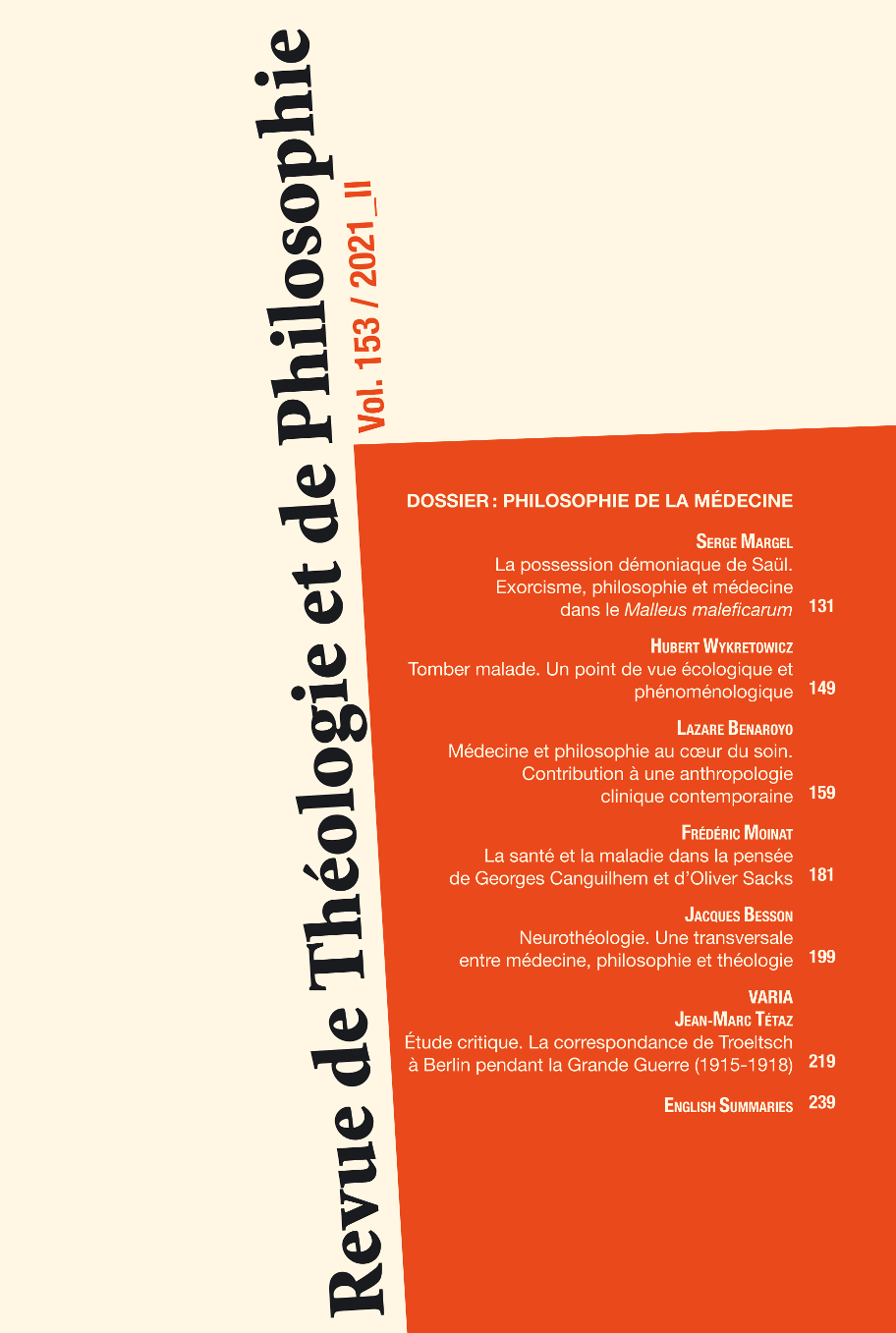Medicine and philosophy at the heart of care
Towards a contemporary clinical anthropology
Abstract
Since nearly half a century, the prevailing account of medical ethics has been first an attempt to shape a theory of biomedical ethics and then apply it to clinical situations. Some physician-philosophers considered it as wrong-headed from the start. They endeavored to explore which kinds of ethical responsibilities flow from a clearer understanding of medical care rather than to pull one or another ready-made general theory of ethics off the shelf, and apply it to the clinical reality. In the context of contemporary debates on the philosophical foundations of medical ethics, this paper explores the anthropological, epistemological and ethical dimensions of clinical practice, and scrutinizes the extent to which the works of 20th century physicians and philosophers such as Viktor von Weizsäcker, Georges Canguilhem, Paul Ricœur and Emmanuel Levinas may help us to grasp today the ethical core of clinical care. It is suggested that the conceptions of ethical responsibility they propounded could shape an appropriate understanding of medical practice that takes root in an ethics of care.
How to Cite
More Citation Formats
Issue
